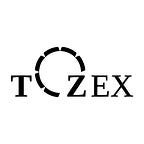Binance and Coinbase vs. SEC: The Battle for Regulation in the Crypto World
In a recent move by the US Securities and Exchange Commission (SEC), two major players in the cryptocurrency industry, Binance and Coinbase, are facing legal action and accusations of operating in violation of securities regulations. This development has significant implications not only for these exchanges but also for the wider crypto market.
Binance: A “Web of Deception”
The SEC has charged Binance, the world’s largest cryptocurrency exchange, and its founder Changpeng Zhao with 13 offenses, alleging a “web of deception” in their operations. Binance handles billions of dollars in investments and has sponsorship deals with prominent sports teams and events. The charges against Binance follow the recent collapse of FTX, another crypto platform, and its founder’s subsequent charges of securities fraud and money laundering.
Coinbase: Accused of Operating Unregistered
The SEC has also accused Coinbase, a well-known US-based crypto exchange, of operating as an unregistered broker, exchange, and clearing agency, putting customers at risk. Coinbase has positioned itself as a reputable exchange and has been targeted by the SEC for alleged violations.
The Regulatory Landscape and Crypto
These enforcement actions by the SEC indicate a broader crackdown on cryptocurrency firms that are perceived to be bypassing regulations. The SEC is targeting companies that blur the lines between on- and offshore services, as seen with Binance, and those trading unregulated securities, as alleged against Coinbase.
The question at the heart of the matter is whether cryptocurrencies require a unique regulatory framework or should be treated as digital versions of existing financial instruments. The SEC believes that a significant portion of the industry falls into the latter category and is seeking compliance or cessation of operations in the US.
Tozex: A Different Approach
Unlike Binance and Coinbase, Tozex offers a self-custody solution with decentralized features, making it fundamentally distinct from centralized exchanges. As a result, Tozex operates in a manner that aligns with the decentralized nature of blockchain technology and is less susceptible to the regulatory challenges faced by centralized exchanges.
Tozex’s self-custody solution ensures that users have full control over their assets, reducing the risk of third-party interference. Additionally, Tozex’s decentralized design allows for cross-chain transactions and supports multiple blockchain networks, enabling greater flexibility and interoperability.
By embracing self-custody and decentralization, Tozex offers a secure and transparent platform for users to engage in blockchain-based transactions without relying on a central authority.
The Future of Crypto Regulation
The recent actions taken by the SEC against Binance and Coinbase signal a challenging period for the crypto industry, with regulators seeking to enforce compliance and protect investors. As the regulatory landscape evolves, it is essential for crypto companies to adapt and find innovative solutions that align with the principles of decentralization and self-custody, like Tozex.
While the industry faces scrutiny and potential regulatory changes, the evolution of cryptocurrencies and blockchain technology continues. It remains to be seen how these developments will shape the future of crypto regulation, but the decentralized and self-custody approach offered by platforms like Tozex may prove to be a viable solution in navigating this ever-changing landscape.
As the crypto market faces a “crypto winter” and increased regulatory pressure, industry participants must remain vigilant and adaptable to ensure the continued growth and success of the crypto ecosystem.
